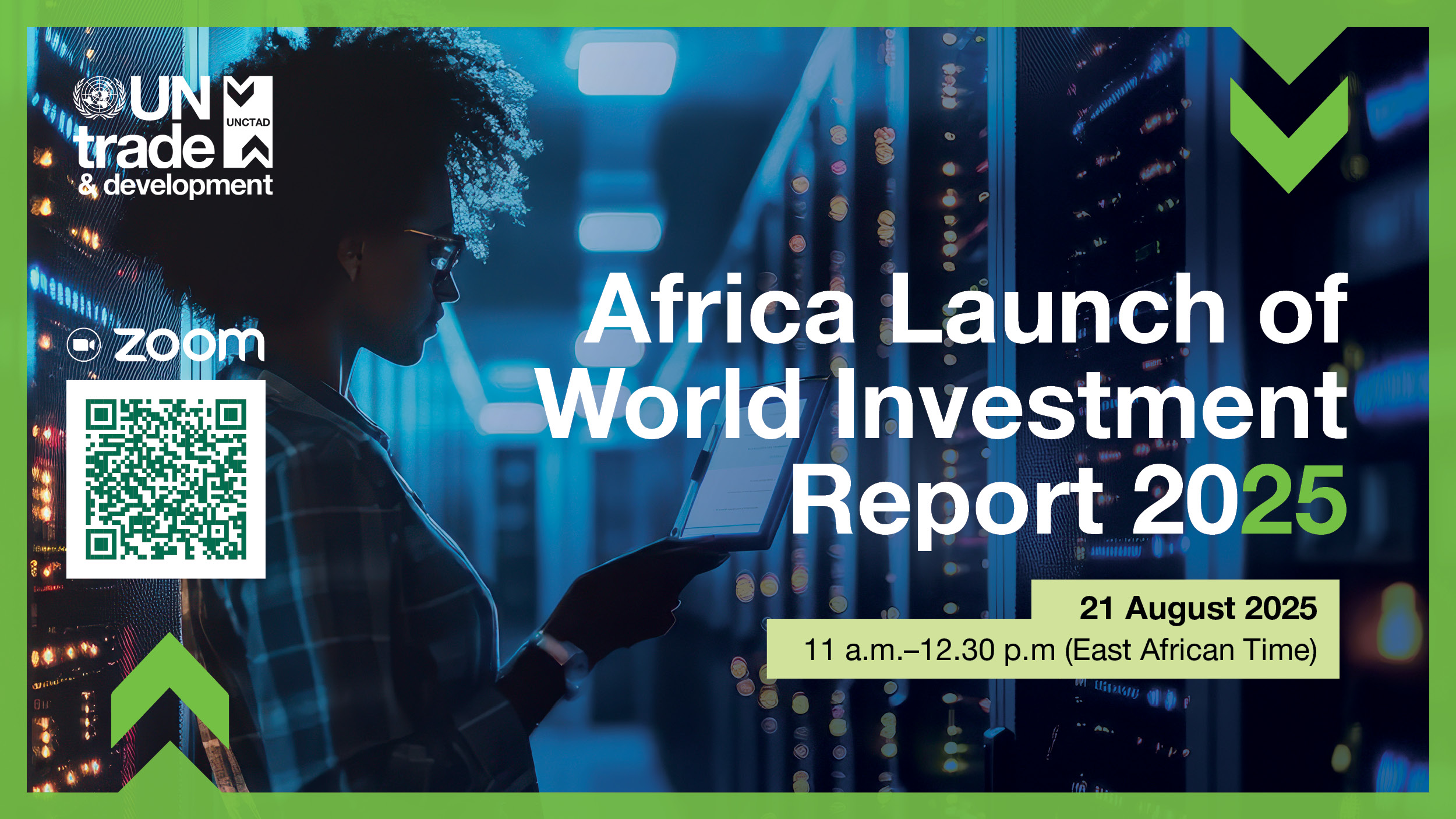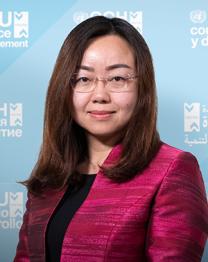
UNCTAD’s World Investment Report 2025 analyzes how the continuing global and regional crises, escalating trade tensions, geopolitical fragmentation, shifting industrial policies, and economic volatility have shaped foreign direct investment (FDI) flows in 2024. The report highlights the continued sectoral and geographical fragmentation of FDI flows to developing countries, with flows remaining concentrated in a few large, middle-income countries and international investment in sectors critical to Sustainable Development Goals showcasing sharp decline largely due to a downturn in international project finance. Notably, at the sectoral level, investment in the digital economy and technology continues to serve as a growth engine, with digital infrastructure registering a 4 percent increase and overall digital sectors witnessing doubling in terms of project values.
Against this backdrop, this year’s thematic chapter focuses on international investment in the digital economy, mapping investment trends, identifying key international investors, priority investment destinations, and emerging frontiers. FDI in the digital economy holds transformative potential for host countries, as they can facilitate the transfer of capital and technology, enhance productivity, create jobs, and support rapid expansion of digital infrastructure. Furthermore, it also contributes to workforce and human resource development, expands market access, and supports digital transformation of the host economy. However, despite positive FDI trends in the digital economy, least-developed countries, including many in Sub-Saharan Africa, remain critically underserved due to major barriers, including high investment risks and high costs of capital. Furthermore, many developing countries still struggle with persistent gaps in key regulatory areas, weak alignment between digital strategies and broader development goals, limited role of investment promotion agencies, and the limited presence of development-focused provisions in international agreements.
In the African context, although energy, construction, and extractives continue to dominate greenfield project activity in the continent, the digital economy has emerged as one of the fastest-growing sectors. FDI in the digital economy has expanded by three quarters in project values and by nearly one third in project numbers over the past five years, signifying the catalytic role that the sector can play in fostering economic growth in Africa. Positive advancements in regional digital strategies have taken place, including the Smart Africa Alliance, which promotes public-private partnerships in digital innovation; the AfCFTA Protocol on Digital Trade, which establishes a regulatory framework for cross-border e-commerce and digital services, as well as other regional communities’ strategies. Furthermore, various countries have implemented initiatives and incentives for investment facilitation and promotion, including Kenya, Nigeria, South Africa, and Rwanda. However, the continent continues to face persistent challenges and plays a marginal role in international investment in the digital economy. For instance, in 2024, Sub-Saharan Africa attracted only $0.7 billion in greenfield projects, covering only 5 percent of its $14.1 billion annual investment required to bridge the connectivity divide. Such limitations significantly hamper the region’s ability to bridge the digital divide and advance progress toward the Sustainable Development Goals.
Objective
The objective of the webinar is to bring together a diverse group of stakeholders to discuss the latest global and regional investment trends, with a particular focus on investment in the digital economy and its implications for Africa. The session will also explore opportunities and policy recommendations to leverage the international investment in Africa’s digital economy to contribute to inclusive and sustainable development across the continent.
Participation
The webinar will bring together different stakeholders from across the continent and beyond with an interest in investment in Africa. Target participants include investment promotion agencies, financial institutions, policymakers and government officials, private sector representatives, international organizations and development partners, and civil society and academia, among others.

Nan has over 25 years’ experience in strategic management roles both with the United Nations and the private sector across Asia, Africa, North America and Europe. She currently leads a global team in investment and sustainable finance research, policy, investment promotion and facilitation, enterprise development, and technical assistance to governments in over 160 countries. She chairs the Governing Board of the UN Sustainable Stock Exchanges Initiative, leads the World Investment Forum and the inter-governmental Working Group on International Standards of Accounting and Reporting.
Before joining UNCTAD, she served as the Global Director of Sustainable Investments and Innovation at UNOPS, where she led a team to promote infrastructure investments in many developing countries and co-invest with DFIs and private investors. She served as UNOPS focal point in the UN Inter-agency Task Force on Financing for Development.
Previously, she served as the Head of UNDP SDG Innovative Finance and as Head of South-South Cooperation and Investment at UNDP's Asia Pacific Center in Bangkok. She led a team to engage public and private investors and developed national policy dialogues and networks on SDG investment, piloted SDG-aligned funds, bonds and projects in multiple countries. She helped to position UNDP as a pioneer in the UN on sustainable investment and innovative finance. She also held positions as Policy Specialist in Capacity Development and Public-Private Partnerships in New York and Johannesburg since 2009, overseeing a regional portfolio in Eastern and Southern Africa.
Before joining UNDP, she spent about 10 years in the private sector in China and the USA, covering market entry and investment strategy, merger and acquisition, business development and sustainability. She holds a master’s degree in business administration from Hong Kong University of Science and Technology, and participated in the Executive Leadership program at IESE, and Finance Executive program at Tsinghua University.



Dr. Amelia U. Santos-Paulino is Chief of the Investment Issues at UNCTAD’s Division on Investment and Enterprise.
Previously, she was a Senior Economist at UNCTAD’s Africa, Least Developed Countries and Special Programmes Division. Before joining UNCTAD, she was Research Fellow and Project Director in the United Nations University’s World Institute for Development Economics Research (UNU-WIDER) in Helsinki, Professorial Research Fellow in the University of Sussex’s Institute of Development Studies, and Senior Research Economist in the Central Bank of the Dominican Republic.
She served as Senior Adviser of the Dominican Republic’s Government on International Trade and Investment for the negotiations of the US-DR-CAFTA Free Trade Agreement, amongst other full-time posts within the civil service and academia of the Dominican Republic. She has also held visiting posts at the University of California, Davis, the Graduate Institute of International and Development Studies in Geneva, Fudan University in Shanghai, and the Asian Development Bank Institute in Tokyo.
Her work has been published in journals including the Economic Journal, Cambridge Journal of Economics, and World Development, and has also edited books published by Oxford University Press and Cambridge University Press.
She holds PhD and MA degrees in Economics from the University of Kent in the UK.


